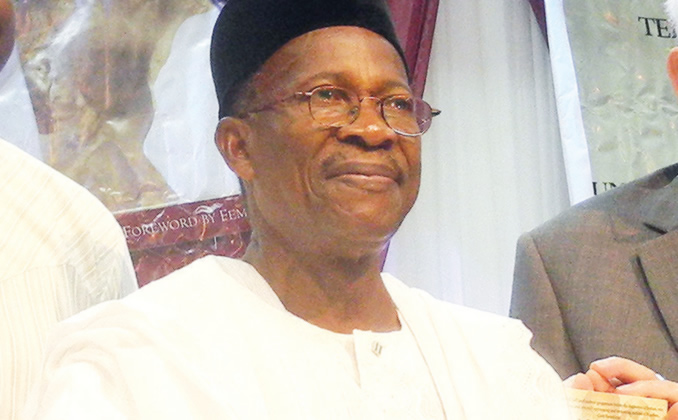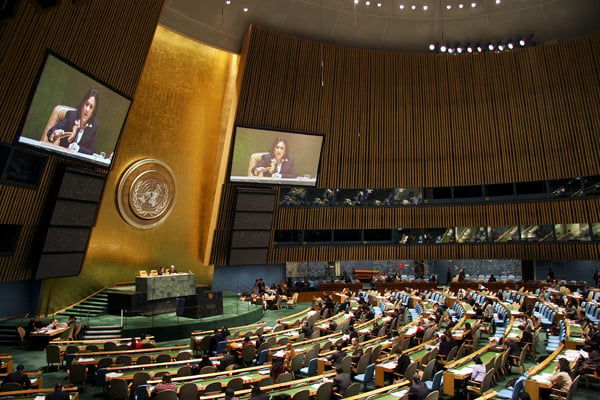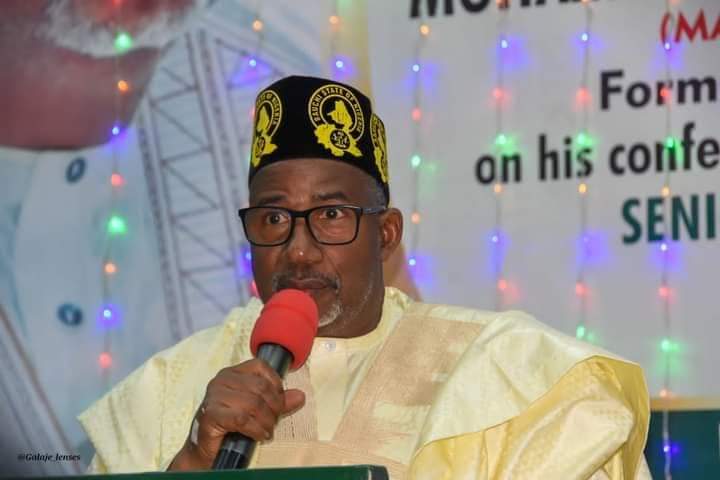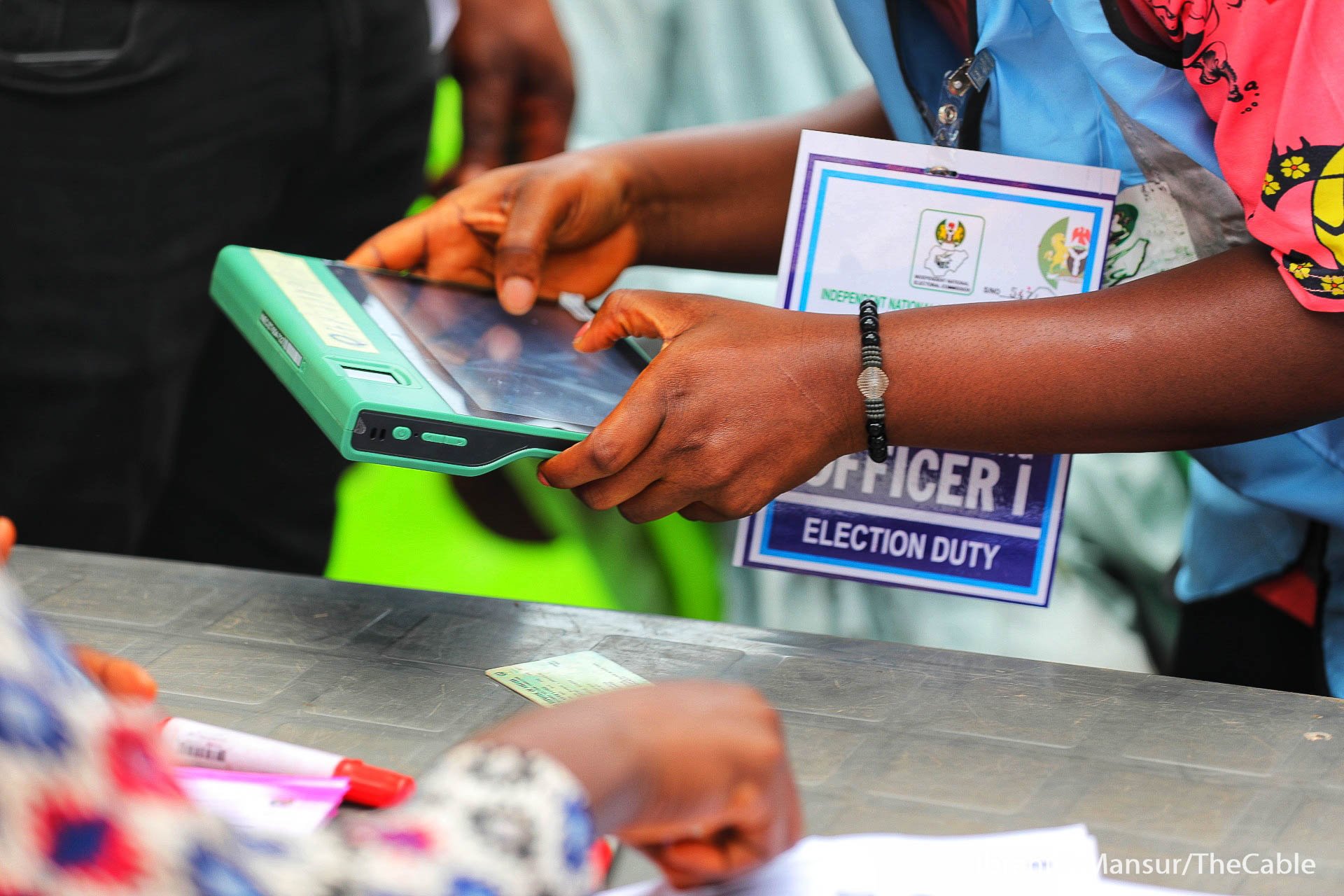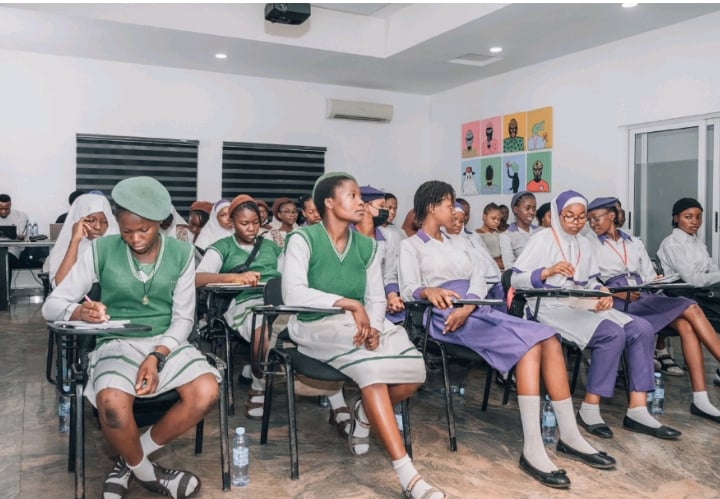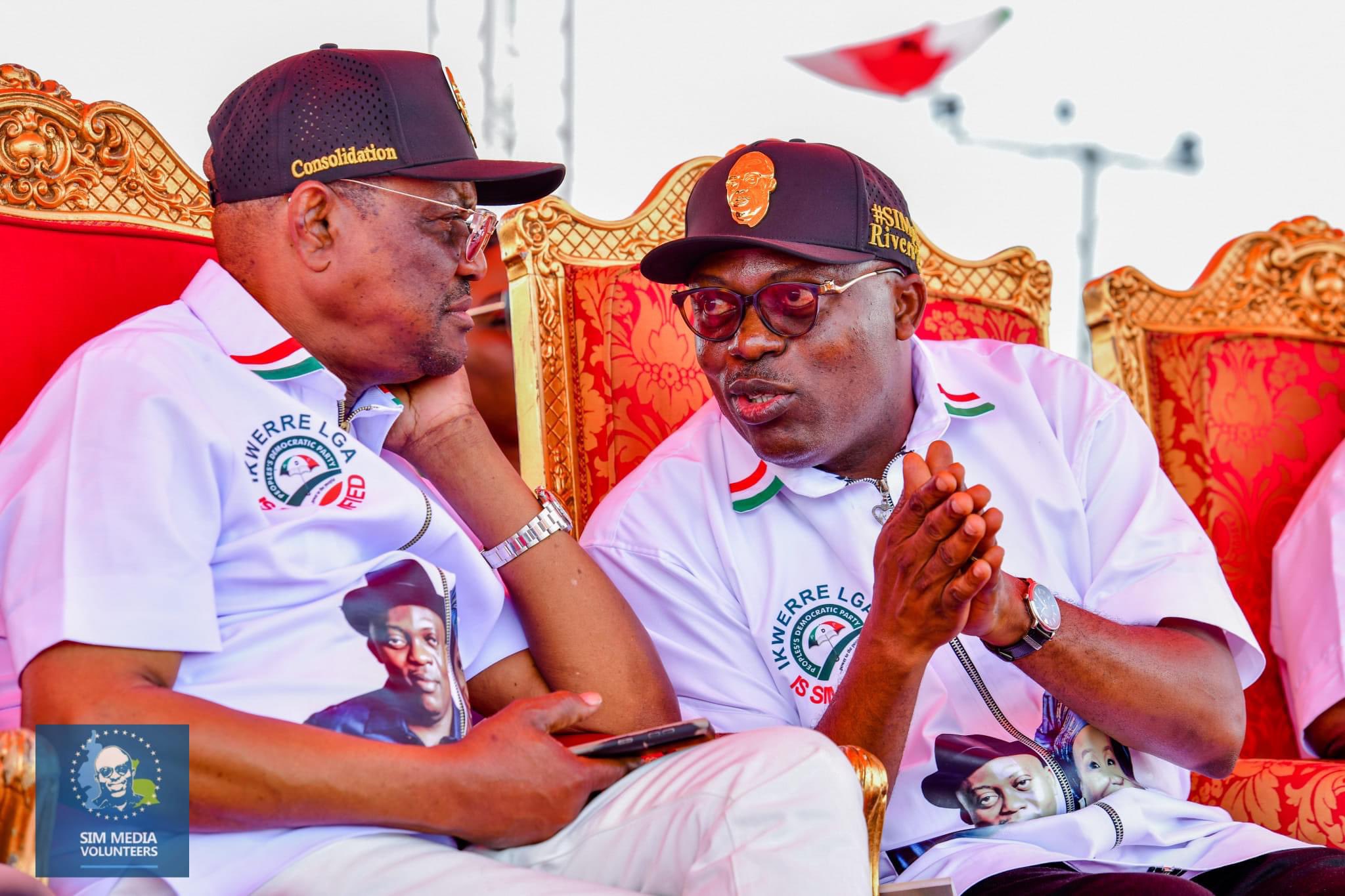It was 25 years ago; Saturday, October 10, 1998, to be precise. We were all inside the living room of the Yaba, Lagos, modest home of Frank Ovie-Kokori. We were waiting for our heroes. In the heat of the June 12, 1993, presidential election validation saga, Kokori was Secretary-General of the Nigeria Union of Petroleum and Natural Gas (NUPENG) workers and a major weapon deployed by pro-democracy activists to frustrate the vile government of Head of State, General Sani Abacha.
The journey from Ibadan, Oyo state, to Lagos that morning had been devoid of its usual serpentine traffic snarl. My editor, Femi Adeoti, freshly out of Sani Abacha’s jailhouse at Agodi Prisons, had got wind of a small reception that was afoot in Kokori’s home. A day before then, on October 9, self-exiled National Democratic Coalition (NADECO) chieftains, driven to scamper into exile by the blood-baiting fangs of Gen Abacha, had arrived in Nigeria from their various bunkers abroad. Air Commodore Dan Suleiman, Chief John Odigie-Oyegun, Reverend Peter Obadan, and Senator Bola Tinubu, on that day, returned to Nigeria. Four months prior, Nigeria had been relieved of the cruel, maximum rule of Abacha. He expired without a whimper. The country was also recuperating from the unexpected death of Chief MKO Abiola, winner of the June 12, 1993, presidential election.
Unlike his military ruler predecessors, General Abdulsalami Abubakar had begun a genuine return of power to a democratically elected government. As a prelude to this, on June 15, 1998, the new Head of State ordered the release of some high-profile political detainees which included then General Olusegun Obasanjo, Ibrahim Dasuki, Chief Bola Ige, Beko Ransome-Kuti, Chris Anyanwu, Ovie-Kokori and some other journalists and pro-democracy activists who Abacha had incarcerated. On July 9, 1998, Abubakar’s Provisional Ruling Council (PRC) also commuted to jail terms the death sentences earlier passed on General Diya, and his colleagues for their alleged involvement in the December 1997 coup. This was followed in tow by his government’s unveiling of a political transition programme on July 20, 1998, which affirmed May 29, 1999, as the handover date, proceeding on August 11, 1998, to inaugurate a 14-member Independent National Electoral Commission (INEC) headed by Justice Ephraim Akpata (rtd).
Assured that General Abubakar’s new government meant well, an exodus back to Nigeria of exiles who had fled the Abacha rule began. NADECO had been a huge thorn in the flesh of General Abacha. Formed on May 15, 1994, the founding of the coalition aimed to press for the revalidation of the June 12 election. Its first baptism of fire was the May 23, 1994, call for a boycott it made of the Abacha National Constitutional Conference. On NADECO’s order, that conference was massively boycotted, the South-West being the hub of resistance to it. The boycott was so intense and effective that Ibrahim Coomasie, Nigeria’s Inspector General of Police, declared NADECO illegal on May 31, 1994, a call which signposted Abacha’s eventual clampdown on Nigerian pro-democracy activists. NADECO then became the first bite of Abacha’s Dracula incisors, with its members bailing out of Nigeria through orthodox and unorthodox routes.
Advertisement
We sat awaiting Kokori’s august guests. They all arrived to pay what they called homage to the petroleum union czar. Dan Suleiman, Odigie-Oyegun, Peter Obadan, Bola Tinubu and Tokunbo Afikuyomi walked into Kokori’s living room hugging one another with a suffusion of handshakes. They were all very excited about the reunion. It was not much of a speech-making event but an opportunity to relive the trench years and appreciate how Providence had made them outlive the maniacal machinations of Abacha. As they did this, I moved around them for interviews. Bola Tinubu, the man who was a senator in the previous aborted republic, and who today is the president of Nigeria, was my first target.
What struck you as you first came back home; your impression of Nigeria now, that is? I asked. “Retrogression, rolling backwards, on reverse gear, that is my impression. Sad. People are still queuing at the petrol stations, and spend more productive hours at the petrol stations than in the economic sector. It is a very sad story… You see poverty, glaringly in the face of the people in a nation that has so much resource to give. It hurts,” Tinubu told me.
When asked about his experience in exile, he made an ad-lib detour to Kokori. “…Our own situation was even much better than him (pointing to Kokori) who we are here to pay tribute to today. A man (detained) in a dinghy, six by six cell, blindfolded, not with cloth but there was no daylight in the prison; he was tortured mentally, physically and emotionally. Ours was only restricted to mental torture…” The interview ended with my asking Tinubu to cast his mind back on Abacha’s rule; does he wonder how Nigeria could have ended up spending five gruelling years under the dictator? His response: “Abacha was a possessed man, evil in the true calling of it because he had no leadership quality, no vision whatsoever. He was trained to brutally win a war, shoot and kill…He coupled that with his sense of dishonesty, lying, manipulation and deception…What was sad was, that became seriously sad, was the people who now became members of the five political parties who wanted Abacha to reign. They could not see anything wrong in what Abacha was doing to their brothers and sisters. They are political prostitutes who should not have any political opportunity in any political environment in the next five to ten years… (they) don’t deserve to be in any position of trust or leadership in this country…”
Advertisement
Dan Suleiman too was full of praise for Kokori but all the returnee exiles had very uncomplimentary words for Abacha. For Commodore Suleiman, “his demise…was a judgment from above and our only desire is that we never have to go through such an era again in our lives”. To Obadan, “Abacha was bad news. He was a bloodthirsty demon and it is unfortunate that the military raised such a monster, very unfortunate”. When I asked Oyegun to look at the Abacha phenomenon in retrospect and proffer what was responsible for his downfall, he said, “I will say, God, because the good old saying is that those whom the gods wish to destroy, they first make mad”.
The likes of Kokori should remind Nigerians that the civil rule they enjoy today was not handed on a silver platter. It cost the lives, blood, tears and freedom of some Nigerians who fought for it as the country walked down the aisle of this long road to freedom. Kokori played a major role in the protests that sprung up across the country immediately after Ibrahim Babangida annulled the election. It was the first time NUPENG would be realising the awesome power on its shoulders to singlehandedly paralyze the country’s economy. Kokori weaponised this by instigating workers to embark on a strike that caused total paralysis that grounded Nigeria’s economy. Thus, on July 5, 1994, NUPENG and Petroleum and Natural Gas Senior Staff Association (PENGASSAN) struck, throwing Nigeria into the longest strike in her history as a protest against the annulled presidential elections raged in Nigeria.
Several other events followed. On July 8, 1994, an orgy of riots broke out in the Southwestern states, especially Lagos, Oyo, Ondo, and Ogun, as well as in Edo State and on August 3, 1994, the Nigerian Labour Congress (NLC) in solidarity with the oil workers’ strike, also called for a general strike. This led to the crackdown by Abacha who sacked the executive council of NUPENG, PENGASSAN and NLC, and shut down three newspapers– Punch, Concord group and The Guardian. Abacha was said to have baited Kokori with a mouth-watering appointment and cash and upon refusal, laid a snare for him and Kokori was finally arrested on August 18, 1994.
For those who didn’t know or have forgotten, Nigeria was miniature Palestine in the war between Abacha and the pro-democracy activists. On May 31, 1995, a seismic bomb blast was recorded at the launch of the Family Support Programme (FSP) in the Ilorin Stadium. Two people died. Similarly, on November 14, 1996, a car bomb exploded at the Murtala Mohammed International Airport, killing three people, including the Chief Security Officer of the Federal Airport Authority (FAA), Dr. Shola Omasola. In Ondo, on September 25, 1997, a bomb explosion banged in the country home of Chief Alex Akinyele, ex-information minister. I was there and saw the deep hole it made in the chief’s house. As the Yoruba say calamities come in a jiffy (peki laa ko eemo) two weeks before his arrest, Gen Diya narrowly escaped being bombed when an explosion rocked the Abuja Airport as he prepared to fly to Markurdi, Benue state to represent Abacha at the funeral of the mother of Major-General Lawrence Onoja. Intels later revealed that the Abacha government was behind the bombings. It was a precursor to his other calamities.
Advertisement
Unexplained murders of those who had one or two things to do against Abacha’s sit-tightism were rife as some were either detained or disappeared. Chief Alfred Rewane, Mrs. Suliat Adedeji, Rear Admiral Olu Omotehinwa, Admiral Tunde Elegbede and many more were cruelly murdered. On September 12, 1994, Olu Onagoruwa, a highly respected pro-democracy activist, who was serially persuaded not to accept the Abacha invitation to work with his government, was sacked as Attorney General and Minister of Justice, although he claimed to have resigned. Apparently having a feeling of monachopsis, Onagoruwa had disowned eight inhuman decrees promulgated by the Abacha government. He had earlier lost his son, Toyin who was murdered by some unknown assailants.
In an interview he later granted TheNews magazine, Onagoruwa had explained Toyin’s death thus: “General Abacha was not happy with my departure from his government. He felt I was arrogant and overbearing. News started to get to me that I was in danger and that I should be very careful…Little did we realise that he would pounce on our son, Oluwatoyin, who qualified as a lawyer in 1995. Toyin was very dear to us. He was a loving child; he was palpably cheerful and kind. He had one boy, Victor, as his friend. They were so close that the boy looked very much like part of our family. When this boy could not pay his school fees, I had to pay. On the day of his wedding, my wife and I stood in as his parents. We do not know how this boy got into the SSS (State Security Service) camp and these operatives used him against us. He told them Toyin’s movement in the evenings, particularly to his fiancee’s house; and he told them the address of the house… they felled Toyin”.
When some of us agonize over how little difference exists between then and now, few know the depth of our feeling of déjà vu and the privations we also suffered. I had resigned from The Tribune to go join efforts with Segun Olatunji, Adeolu Akande, Wale Adebanwi and Bode Opeseitan in a newly founded newspaper named Omega Weekly. We were unpretentiously adversarial against the military government. Our stories, features and editorial opinions were audaciously disdainful of Abacha and his government. Adebanwi got whiffs of happenings in the Villa almost immediately they occurred which decorated the front pages of our newspaper. We were the newspaper wing of the pro-democracy activists. One day, we received Intels that Abacha’s goons were after us. So, in the night, we ferried all our computer machines to my rented apartment at Oke-Ayo, Odo Ona, Ibadan where we began to produce the newspaper and to print it in undisclosed locations. God bless her soul, my landlady, Mrs. Folasade Asake, never knew that high treason was being baked in her house. If any one of us was ever captured, we would have suffered Bagauda Kaltho’s fate.
An on-a-lighter-mood incident I still recollect with so much laughter was December 22, 1997, the day after General Diya and his colleagues were rounded up for their alleged involvement in a coup plot. I had just purchased a pair of shoes I wore to our office in the Olusanya area of Ibadan’s Ring Road; my necklace hanging invitingly. When Adebanwi saw me, astounded, he asked if I knew what calamity had befallen Nigeria. Did I know of Diya’s arrest? Why then was I so daintily dressed? Akande also mockingly asked if I knew that there was a disjunction between “those prose writings of yours and the image of you in mundane necklace”. That was the last time I ever wore a chain.
Advertisement
In their hearts of hearts, many of those I interviewed in Kokori’s house on October 10, 1998, must be thoroughly dejected about their post-Abacha Nigeria dream and what we have now. Nigeria, under “the progressives” and “the pro-democracy activists” answers that old saying that, the more things change, the more they stay the same. Tinubu’s impression of Nigeria as “retrogression, rolling backwards, on reverse gear” is still the sad lot of Nigeria today, if not worse. His “people are still queuing at the petrol stations, spending more productive hours at the petrol stations than in economic sector,” what he judged as the “very sad story” is still the sad story Nigeria grapples with. His “you see poverty, glaringly in the face of the people in a nation that has so much resource to give,” sounds like a prophecy he foretold of Nigeria in 2023 under his watch as president. Poverty and hunger seem like the Nigerian prevailing zeitgeist now. The president must be agonising today about what to do to reverse his prophecies and make Nigerians sing Alleluyah. I am sure Frank Ovie-Kokori died last week a sad man.
The one that hurts most is that, if Tinubu, 25 years ago, was that incensed with Gen Abacha as “a possessed man, evil in true calling” and was riled at those who worked with him, who “could not see anything wrong in what Abacha was doing to their brothers and sisters,” how did he feel working for Abacha’s main man, Muhammadu Buhari, to be president in 2015 and how comfortable is he with Abacha’s very well known business associate, Abubakar Atiku Bagudu, as our minister of budget and economic planning today?
Advertisement
Today, I wonder what the state of the families of those who died in the struggle for the actualisation of June 12; those shot by soldiers and policemen; and those who struggled for a better Nigeria but are confronted by an opaque future today. It reminds me of Peter Tosh’s Jah Sey No song. At some point, it dawned on this iconoclastic reggae music singer seeking change in the world that the struggle was a mirage. He was getting wary of the feeble impact of his songs, especially the repeated attacks and assaults that he got from the authorities. So, in Jah seh so, Tosh launched into existential rhetorical questions. He repeatedly asked if a Rastaman, the longsuffering believer, “must bear this cross alone and all the heathens go free? Must Rasta live in misery and heathens in luxury? Must the righteous live in pain and always be put to shame? Must they be found guilty and always get the blame?”
Is that the song those who salivated for a great Nigeria; those who walked barefooted through the thistles and briers of military rule, are now singing? Frank Kokori died a few days ago on his 80th birthday. He was an authentic hero of democracy. May his valiant soul rest in peace.
Advertisement
Views expressed by contributors are strictly personal and not of TheCable.
Add a comment

